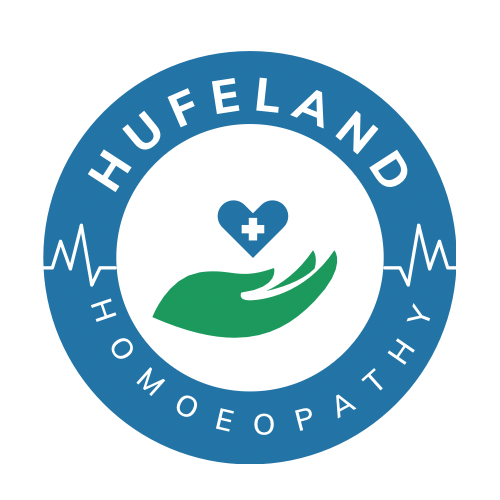- Fathima Roshni N

- Jan 4, 2025
- 4 min read
Achalasia Cardia, also known simply as Achalasia, is a rare yet chronic condition that affects the esophagus, the tube responsible for carrying food from the mouth to the stomach. Characterized by difficulty in swallowing (dysphagia), chest pain, and regurgitation of undigested food, this condition significantly impacts the quality of life of those affected. In this blog, we delve deep into understanding Achalasia Cardia, its symptoms, causes, and the holistic role of homeopathy in managing this challenging condition.
What is Achalasia Cardia?

Achalasia Cardia is a disorder where the esophagus loses its ability to move food toward the stomach due to damage or dysfunction of the nerves controlling the esophageal muscles. Additionally, the lower esophageal sphincter (LES), a muscular ring at the bottom of the esophagus, fails to relax properly, making it difficult for food to pass into the stomach.
This condition is progressive, meaning symptoms worsen over time if left untreated. Early diagnosis and management are crucial for improving patient outcomes.
Symptoms of Achalasia Cardia
Recognizing the symptoms of Achalasia Cardia is key to early diagnosis. Common symptoms include:
Dysphagia: Difficulty in swallowing, often described as a sensation of food sticking in the throat or chest.
Regurgitation: The backflow of undigested food, which can lead to choking or aspiration.
Chest Pain: Discomfort or pain in the chest, especially after eating.
Weight Loss: Unintentional weight loss due to reduced food intake.
Heartburn: A burning sensation, often mistaken for gastroesophageal reflux disease (GERD).
Coughing or Hoarseness: Caused by aspiration or regurgitation.
Fullness or Discomfort: A feeling of bloating or fullness even after eating small amounts.
Causes of Achalasia Cardia
The exact cause of Achalasia Cardia remains unknown, but it is often linked to:
Autoimmune Factors: The body’s immune system attacking the nerve cells in the esophagus.
Nerve Degeneration: Loss of nerve function within the esophageal muscles.
Infections: Certain viral infections may trigger immune responses that damage the esophageal nerves.
Genetic Predisposition: Family history may play a role in some cases.
Chagas Disease: A parasitic infection, common in Central and South America, known to cause symptoms resembling Achalasia.
Diagnosis of Achalasia Cardia
Diagnosing Achalasia Cardia involves a combination of clinical evaluations and diagnostic tests. Common diagnostic methods include:
Esophageal Manometry: Measures the rhythmic contractions of the esophagus and LES pressure.
Barium Swallow Test: An X-ray test that reveals the narrowing of the LES and dilation of the esophagus.
Endoscopy: Direct visualization of the esophagus to rule out other conditions, such as tumors.
Conventional Treatment Approaches
Conventional treatments for Achalasia Cardia aim to relieve symptoms by improving esophageal emptying. These include:
Medications: Calcium channel blockers or nitrates to relax the LES.
Pneumatic Dilation: Stretching the LES using a balloon.
Surgical Myotomy: Cutting the LES to allow easier food passage.
Botox Injections: Temporary relief through muscle relaxation.
While these treatments provide symptom relief, they do not address the root cause of the condition and may involve risks or side effects.
Homeopathic Approach to Achalasia Cardia
Homeopathy offers a natural, holistic approach to managing Achalasia Cardia. By addressing the underlying causes and stimulating the body’s innate healing processes, homeopathic remedies provide lasting relief without invasive procedures or harmful side effects. Here are some key aspects of the homeopathic approach:
1. Individualized Treatment
Homeopathy emphasizes treating the individual rather than just the disease. A thorough evaluation of the patient’s physical, emotional, and mental state helps identify the most suitable remedy.
2. Addressing Root Causes
Homeopathy focuses on addressing the underlying causes, such as nerve degeneration or autoimmune factors, rather than merely alleviating symptoms.
3. Key Remedies Indicated Achalasia Cardia
Lycopodium Clavatum: Effective for individuals with bloating, regurgitation, and a feeling of fullness after eating small amounts.
Carbo Vegetabilis: Suitable for those experiencing extreme bloating, belching, and chest discomfort.
Ignatia Amara: Recommended for emotional stress-related symptoms, such as dysphagia and chest pain.
Natrum Phosphoricum: Helps relieve heartburn and acid reflux associated with Achalasia.
Arsenicum Album: Beneficial for individuals with severe regurgitation, burning pain, and anxiety.
4. Lifestyle and Dietary Guidance
In addition to remedies, homeopaths often provide dietary and lifestyle recommendations to support healing. Suggestions include:
Eating smaller, frequent meals.
Avoiding foods that are difficult to swallow or irritate the esophagus.
Maintaining an upright position for 30 minutes after eating.
Staying hydrated to ease swallowing.
Benefits of Homeopathy for Achalasia Cardia
Non-Invasive: Avoids surgeries or invasive procedures.
No Side Effects: Remedies are natural and free from harmful chemicals.
Holistic Healing: Addresses physical, emotional, and mental well-being.
Improved Quality of Life: Reduces symptoms and restores normal esophageal function.
Case Studies: Homeopathy in Action
Several patients have reported significant improvements with homeopathic treatment for Achalasia Cardia. For instance:
A 45-year-old woman experiencing severe dysphagia and weight loss found relief with a combination of Lycopodium Clavatum and Natrum Phosphoricum. Over six months, her symptoms reduced by 80%.
A young man with stress-induced Achalasia symptoms responded well to Ignatia Amara, regaining his ability to eat normally within three months.
Conclusion
Achalasia Cardia is a complex condition that requires a multifaceted approach for effective management. While conventional treatments focus on symptom relief, homeopathy offers a holistic solution by addressing the root causes and improving overall well-being. By opting for individualized homeopathic care, patients can achieve lasting relief and a better quality of life.
If you or a loved one is experiencing symptoms of Achalasia Cardia, consider consulting a qualified homeopath to explore natural, non-invasive treatment options tailored to your needs.
Disclaimer for Homeopathic Treatment
The information provided regarding homeopathic treatment is for educational purposes only and should not be considered as medical advice. It is important to consult a qualified healthcare professional before starting any homeopathic treatment or making changes to your current health regimen.
Key Points to Consider:
Consultation Required: Always seek the advice of a licensed practitioner for any health concerns or conditions.
Individual Responses: Homeopathic treatments may vary in effectiveness from person to person.
By using homeopathic treatments, you acknowledge that you understand the above points and agree to consult with a healthcare provider for appropriate guidance.


Comments